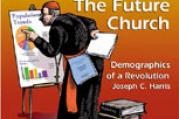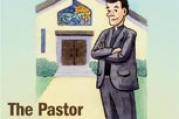Loading...
Click here if you don’t see subscription options
Click here if you don’t see subscription options

Peter Drucker, writing in the Nov. 3, 2001, issue of The Economist, described a revolution that will cause a restructuring of European and American economies and cultures for much of this century. In the developed countries, the dominant factor in the next society will be something to which most peo

Books
Mar 18, 2002 issueEconomics has dabbled in theology from its beginnings Two centuries ago Adam Smith the father of economics got the theological ball rolling with his assertion that prices were determined by the Invisible Hand of competition in the market Karl Marx rsquo s theory of capital was that it was a reli

News
'Underdogs’ Winning in Congress, Rural Life Advocates SayRural life and family-farm advocates say they are winning the legislative fight on the 2002 farm bill, but the game is not yet over. "We’re in the third quarter of [debate on] this year’s farm bill. We’re the u

Many people talk about the priest as acting in persona Christi, "in the person of Christ." But so do all the baptized. They act in the person of Christ in various ways, as Paul emphasizes. There is one body of Christ with many different members. There is one Holy Spirit, who gives to


News
Vatican to Release Some WW II Archival Material EarlyThe Vatican announced it would open ahead of schedule part of its 20th-century archives, including new documents on Vatican-German relations and Pope Pius XII’s efforts to help prisoners during World War II. The Vatican said cataloguing the

Faith in Focus
While I was baking Christmas cookies in mid-December (oh, good, here’s another broken one!), my thoughts suddenly turned to Lent. Clearly I was en route to surpassing the average 1.4 pounds we Americans gain during the Christmas holiday season. So in a perverse sort of way, while munching my w

As a liberal Catholic, I admire the progressive doctrine of Reform Judaism. Last summer, Reform Jews gave me something else to applaud. They have been open-minded enough to restore what they call the affective side of their religion: traditions like Hebrew chant. They now acknowledge that those gest

Letters
Heart of the Gospel
Thanks to John R. Donahue, S.J., for a precise surgical reflection on the Gospel, Jesus in the Dock (2/11). It cuts directly to the heart of the matter. The Word column is the first thing I read, and I am never disappointed. Now that I am teaching Scripture, the reflections offered there are priceless to me.
Jane Ward

Books
Feb 25, 2002 issueAmerica rsquo s Bishop the first full biography of Fulton Sheen holds a candle to its subject The prose does not burn the page Trying to outshine a shooting star is doomed to failure For all his solid scholarship however Thomas C Reeves gives us fast and focused narrative Although loaded wi
